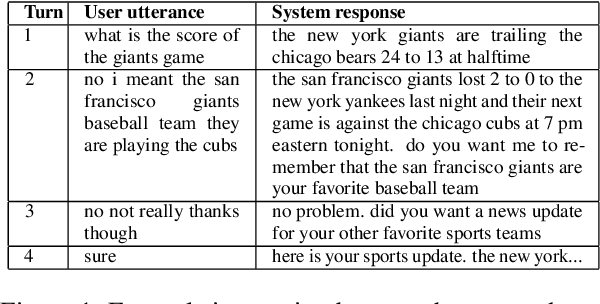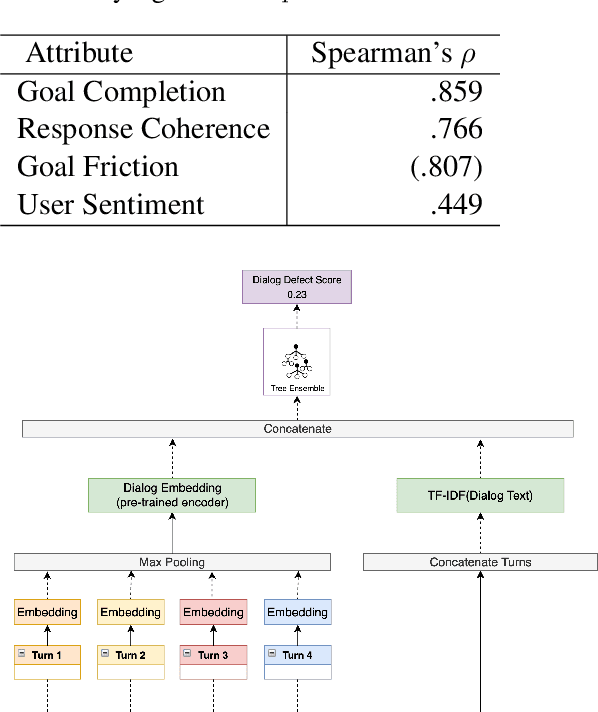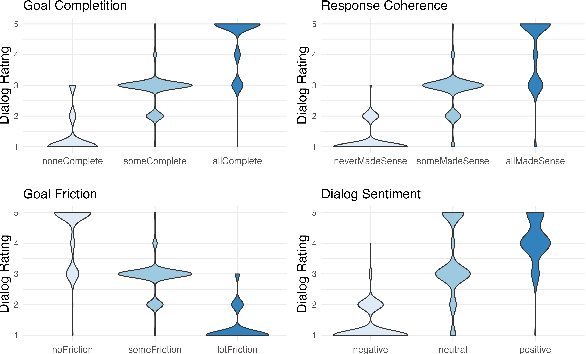Abishek Komma
Toward More Accurate and Generalizable Evaluation Metrics for Task-Oriented Dialogs
Jun 09, 2023



Abstract:Measurement of interaction quality is a critical task for the improvement of spoken dialog systems. Existing approaches to dialog quality estimation either focus on evaluating the quality of individual turns, or collect dialog-level quality measurements from end users immediately following an interaction. In contrast to these approaches, we introduce a new dialog-level annotation workflow called Dialog Quality Annotation (DQA). DQA expert annotators evaluate the quality of dialogs as a whole, and also label dialogs for attributes such as goal completion and user sentiment. In this contribution, we show that: (i) while dialog quality cannot be completely decomposed into dialog-level attributes, there is a strong relationship between some objective dialog attributes and judgments of dialog quality; (ii) for the task of dialog-level quality estimation, a supervised model trained on dialog-level annotations outperforms methods based purely on aggregating turn-level features; and (iii) the proposed evaluation model shows better domain generalization ability compared to the baselines. On the basis of these results, we argue that having high-quality human-annotated data is an important component of evaluating interaction quality for large industrial-scale voice assistant platforms.
 Add to Chrome
Add to Chrome Add to Firefox
Add to Firefox Add to Edge
Add to Edge